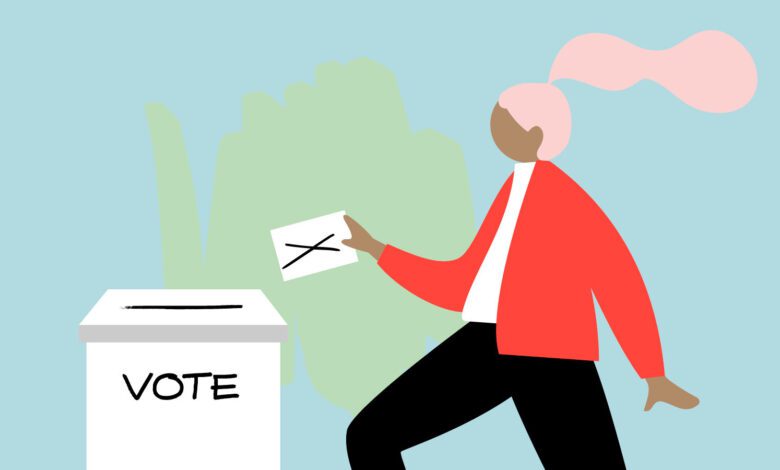Birth Control is On the Ballot

For people who can reproduce, the catchphrase “elections have consequences” went from cliche to concrete reality in 2022. The Supreme Court justices who overturned Roe v. Wade and the reversed abortion rights in June can be assigned for life, but the politicians who choose and approve them are all elected by voters. How the Supreme Court decision resonates is determined by state elections, which have 26 states strictly restrict abortion access (or making it outright illegal), while other states have created laws to protect people seeking abortions.
If all that makes you feel like the fight for reproductive rights is over, we have good/bad news: It’s not. Legal experts point out that the Supreme Court’s decision striking down abortion rights opens up that possibility state lawmakers may follow suit for contraception. In response, the US House of Representatives passed a national law to protect access to birth control. . . but the Senate declined to bring it to a vote — meaning your right to birth control could hang in the balance on Election Day.
What’s at Stake
What you can do: VOTE on November 8th and remember that birth control is on the ballot. Do you think we are being dramatic? Here is just a short list of birth control access issues decided, directly or indirectly, by ballots cast:
If emergency contraception remains legal
9 states have laws or policies that restrict access to emergency contraception, from withholding government funding or eliminating insurance coverage requirements for EC to specifically allowing pharmacists who refuse to fill emergency contraception prescriptions or pharmacies who refuse to dispense it. Some political leaders who mistakenly regard emergency contraception as a type of abortion pill have declared that they want to ban it completely.
If the pharmacist can refuse your prescription
12 states allow some health care providers to refuse to prescribe birth control, or allow pharmacists to refuse to prescribe birth control if it conflicts with their beliefs. These laws are particularly harmful to people in pharmacy desertsa term for both rural and urban areas with a shortage of pharmacies, who may find that the views of the particular pharmacist or pharmacy owner in their area prevent them from accessing this important drug , which makes it harder to prevent an unwanted pregnancy.
If your insurance plan should cover birth control
20 states and DC give some employers and insurance plans the option to refuse to cover the cost of birth control if it conflicts with their beliefs.
The size of your birth control supply
This year, both Maine and New Jersey signed laws requiring health plans to pay for a 12-month supply of birth control at a time, so you can stock up and forget about it for a whole year. Don’t you want your state to do the same?
If young people can access birth control
Only 23 states and DC allow minors to access contraception without meeting specific requirements. In other states, teens must get married, get permission from a parent or clergy, or meet certain other qualifications before getting birth control.
If assault victims can quickly obtain emergency contraception
Only 15 states and DC require emergency rooms to provide emergency contraception to victims of sexual assault, and three states allow pharmacies to refuse to provide EC altogether.
Source: Guttmacher Institute
Don’t Throw Your Vote Away
So it’s clear that the people who hold office at both the state and federal levels have a lot of power over your access to contraception — and your chance to choose those people is just one week away. Make sure your voice is heard when it comes to contraception and more! Like this:
vote: Visit Vote.org to find your polling place, learn about early voting or vote-by-mail options, see what’s on the ballot where you live and more.
Study Issues: The nonpartisan League of Women Voters will provide you with a voter guide based on your address.
Recruit Others: Friends don’t let friends throw away their vote. Remind your crew to vote, share Promise When We All Vote on social media, or even make a plan to go to the polls together.
The news headlines and social media chatter surrounding Election Day may be dominated by hot topics like gas prices or the quirks of particular candidates, but we urge you not to get distracted. Cast your ballot keeping in mind how the outcome will affect the health of you and the people you love, and the ability of people who can reproduce to decide their futures.
The information provided in this article is not a substitute for professional medical advice, diagnosis, or treatment. You should not rely on the content provided in this article for specific medical advice. If you have any questions or concerns, please talk to your doctor.





